Changing Same: The Untitled Racial Justice Project
SYNOPSIS
Changing Same: The Untitled Racial Justice Project is an immersive, room-scale virtual reality experience where the participant travels through time and space to witness the connected historical experiences of racial terror in America. It’s a respectful, haunting story infused with magical realism and Afrofuturism about the uninterrupted cycle of the history of white racial oppression—past and present.
Changing Same seeks to confront the US’s history of lynching and examine how the US’s legacy of racial violence continues to influence contemporary issues such as mass incarceration, crime and justice. Changing Same uses time-travel and magical realism to enable participants to experience the evolution of racial violence in the US and make connections between the past and present, as well as contemplate how our history of racism continues to have a lasting effect on human conditions in the US today. At the end of the experience, participants travel to an Afrofuturist world to imagine a more equitable future for all, one that is attentive and accountable to the violences of the past.
ABOUT THE DIRECTORS
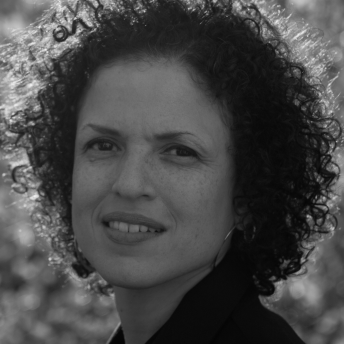 Michèle Stephenson, pulls from her Panamanian and Haitian roots to tell compelling, personal stories. Her work has appeared on a variety of platforms, including PBS and Showtime. Her film, American Promise, was nominated for three Emmys including Best Documentary. She was recently awarded the Chicken & Egg Award and is a Guggenheim Fellow and Skoll Sundance Storytellers of Change Fellow.
Michèle Stephenson, pulls from her Panamanian and Haitian roots to tell compelling, personal stories. Her work has appeared on a variety of platforms, including PBS and Showtime. Her film, American Promise, was nominated for three Emmys including Best Documentary. She was recently awarded the Chicken & Egg Award and is a Guggenheim Fellow and Skoll Sundance Storytellers of Change Fellow.
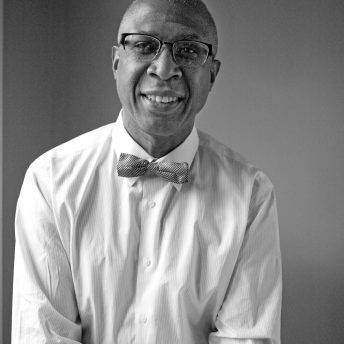 Joe Brewster uses his psychiatrist training to inform the social issues he tackles as a filmmaker. Brewster is a Spirit Award and three-time Emmy Award nominee. His documentary, American Promise, won Jury Prize at Sundance. Brewster’s outreach accomplishments include a BritDoc Prize for developing one of the most innovative impact campaigns.
Joe Brewster uses his psychiatrist training to inform the social issues he tackles as a filmmaker. Brewster is a Spirit Award and three-time Emmy Award nominee. His documentary, American Promise, won Jury Prize at Sundance. Brewster’s outreach accomplishments include a BritDoc Prize for developing one of the most innovative impact campaigns.
Breathe
SYNOPSIS
Breathe, a location based virtual reality experience, takes place in the not-too-distant future, where man-made climate change has caused a deficit of resources, leading to war in the usually sheltered West. Five users enter the experience together. In the headset, you will embody Rose, a young girl orphaned by war. Throughout the experience, you see through her eyes, hear through her ears, and breathe through her lungs. You interact with the world around you and progress the narrative of the story using your breath through a custom breath sensor. You witness key moments of Rose’s life on her path of empowerment – transforming from a child emerging from rubble to an activist working to better the lives of refugees. You will follow Rose until she is 90 years old, releasing her final breath. But instead of an ending… you witness a new beginning. Breathe begins as an individual experience, but grows into a social experience — where you and the 4 users who began the experience in tandem, will be united by the power of your breath and co-create an entire universe. Even as humanity continues to falter and harm each other, Breathe seeks to remind us of the solace we can find in our similarities.
ABOUT THE DIRECTORS
 Winslow Porter is a Brooklyn based director, producer and creative technologist specializing in virtual reality and large-scale immersive installations. With over six years of experiential work under his belt, he has helped create interactive art experiences for Google, Delta, Diesel, and Wired, to name a few. Winslow also produced the Tribeca Film Festival Transmedia Award-winning documentary CLOUDS, among other acclaimed new media projects. Winslow formed New Reality Company with Milica Zec in 2016, creating both Giant and Tree, and continues consulting on dozens of interactive/immersive projects with notable creatives and brands.
Winslow Porter is a Brooklyn based director, producer and creative technologist specializing in virtual reality and large-scale immersive installations. With over six years of experiential work under his belt, he has helped create interactive art experiences for Google, Delta, Diesel, and Wired, to name a few. Winslow also produced the Tribeca Film Festival Transmedia Award-winning documentary CLOUDS, among other acclaimed new media projects. Winslow formed New Reality Company with Milica Zec in 2016, creating both Giant and Tree, and continues consulting on dozens of interactive/immersive projects with notable creatives and brands.
 Milica Zec is an NY/LA based film and virtual reality director, editor, and screenwriter. Her virtual reality directorial debut was a short narrative piece called Giant, which premiered at the Sundance Film Festival’s New Frontier 2016. Her second VR experience Tree was also selected for Sundance New Frontier, Tribeca Film Festival’s Virtual Arcade, and “TED2017: The Future You” in Vancouver. Milica and her New Reality Company co-founder Winslow Porter were named as designers in residence at A/D/O and named to Adweek’s Creative 100 in digital innovation.
Milica Zec is an NY/LA based film and virtual reality director, editor, and screenwriter. Her virtual reality directorial debut was a short narrative piece called Giant, which premiered at the Sundance Film Festival’s New Frontier 2016. Her second VR experience Tree was also selected for Sundance New Frontier, Tribeca Film Festival’s Virtual Arcade, and “TED2017: The Future You” in Vancouver. Milica and her New Reality Company co-founder Winslow Porter were named as designers in residence at A/D/O and named to Adweek’s Creative 100 in digital innovation.
The F Word: A Foster-to-Adopt Story
SYNOPSIS
Season 1 of The F Word revealed the story of one queer couple adopting from foster care in Oakland, CA. Season 2 continues their story while amplifying other voices in the foster care world: birth families, foster youth, adoptees, adoptive parents of color, and social entrepreneurs working to repair a broken system.
ABOUT THE DIRECTOR
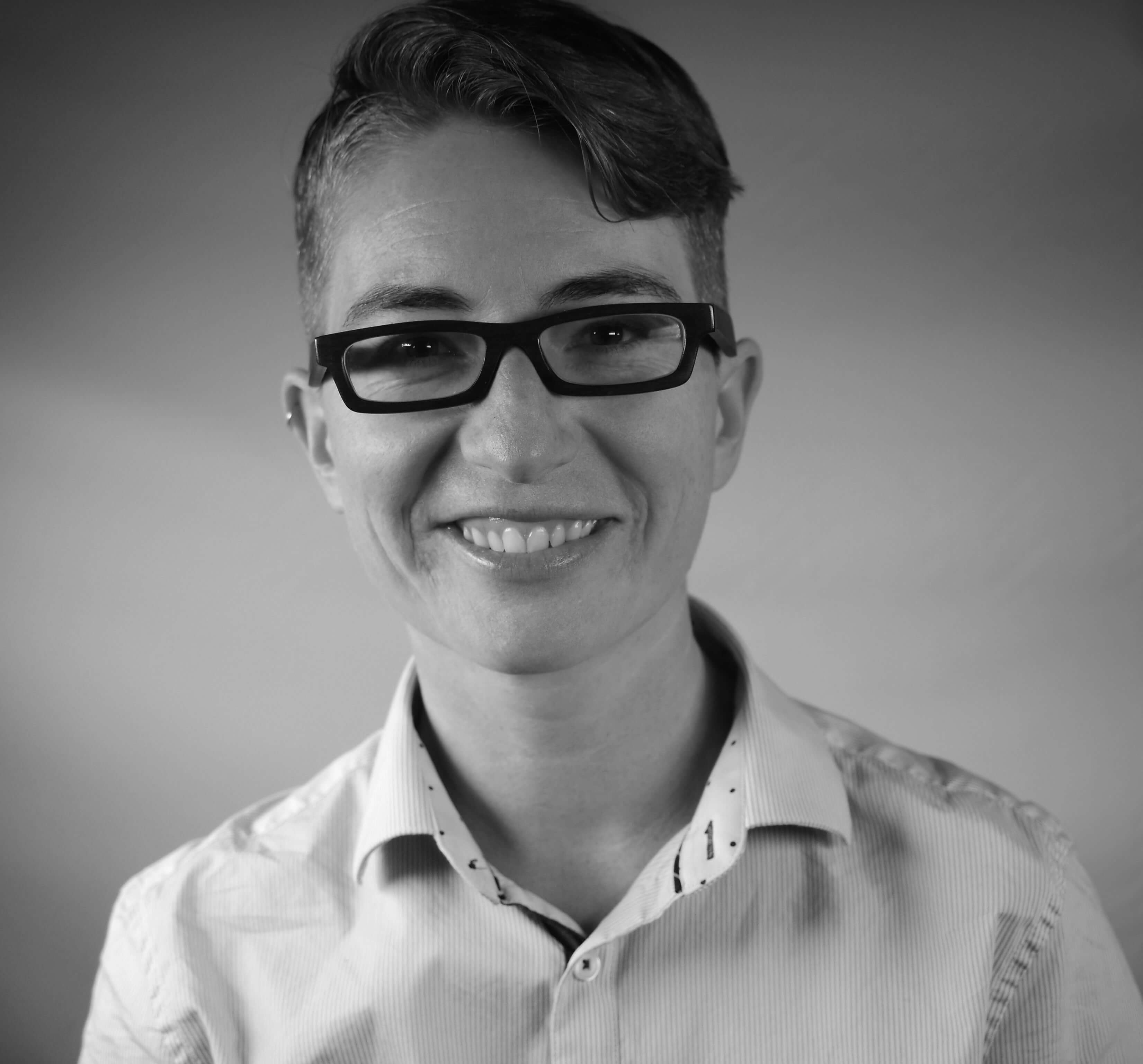 Nico Opper is the Emmy®-nominated filmmaker of Off and Running (POV, 2010) and Visitor’s Day. Nico’s work has screened at Tribeca Film Festival, AFI Docs, Guadalajara, Frameline, Outfest, and 70 other festivals internationally, and has been supported by ITVS, Chicken & Egg Pictures, NYSCA, Black Public Media, and a Fulbright Fellowship. Nico was one of Filmmaker Magazine’s “25 New Faces of Independent Film.” The F Word (Season One) was featured on Indie Lens Storycast, a channel created by ITVS and PBS.
Nico Opper is the Emmy®-nominated filmmaker of Off and Running (POV, 2010) and Visitor’s Day. Nico’s work has screened at Tribeca Film Festival, AFI Docs, Guadalajara, Frameline, Outfest, and 70 other festivals internationally, and has been supported by ITVS, Chicken & Egg Pictures, NYSCA, Black Public Media, and a Fulbright Fellowship. Nico was one of Filmmaker Magazine’s “25 New Faces of Independent Film.” The F Word (Season One) was featured on Indie Lens Storycast, a channel created by ITVS and PBS.
Tree
SYNOPSIS
A virtual experience that transforms you into a rainforest tree. With your arms as branches and body as the trunk, you experience the tree’s growth from a seedling into its fullest form and witness its fate firsthand.
ABOUT THE DIRECTORS
Tree is co-directed by Milica Zec and Winslow Porter.
 Milica Zec is a film and virtual reality director, editor, producer, and screenwriter. Her debut VR film, Giant, has been a highlight of film and new media festivals including Sundance New Frontier and Cannes’ NEXT Programme. Based on real events, “Giant” has been critically lauded as an example of VR’s incredible potential to encapsulate the human experience. Prior to creating Giant, Milica collaborated with the performance artist Marina Abramovic for nine years, including on her seminal show, The Artist is Present at the Museum of Modern Art in New York City. Milica has also written and directed the films Marina Abramovic Presents MACCOC (Venice Biennale 2011) and a music video for the Antony and the Johnsons song, “Christina’s Farm.” Milica is a graduate of The University of Dramatic Arts in Belgrade, Serbia and SCPS NYU. Since 2015, she has been a member of NEW INC, the New Museum’s art, technology, and design incubator in New York City.
Milica Zec is a film and virtual reality director, editor, producer, and screenwriter. Her debut VR film, Giant, has been a highlight of film and new media festivals including Sundance New Frontier and Cannes’ NEXT Programme. Based on real events, “Giant” has been critically lauded as an example of VR’s incredible potential to encapsulate the human experience. Prior to creating Giant, Milica collaborated with the performance artist Marina Abramovic for nine years, including on her seminal show, The Artist is Present at the Museum of Modern Art in New York City. Milica has also written and directed the films Marina Abramovic Presents MACCOC (Venice Biennale 2011) and a music video for the Antony and the Johnsons song, “Christina’s Farm.” Milica is a graduate of The University of Dramatic Arts in Belgrade, Serbia and SCPS NYU. Since 2015, she has been a member of NEW INC, the New Museum’s art, technology, and design incubator in New York City.
Winslow Porter is a Brooklyn-based film and virtual reality director, producer, and creative technologist. Winslow has always been fascinated with the possibilities of how the intersection of art and technology can elevate storytelling. After beginning his career as a film editor and modern dance composer, Winslow attended NYU Tisch’s Interactive Telecommunications Program (ITP) and delved into the world of creative technology soon thereafter. Winslow’s previous work includes interactive experiences for Google, Delta, Diesel, TED, Merrel, and Wired. While at Carbon Pictures in 2014, Winslow produced the Tribeca Film Festival Transmedia Award-winning documentary CLOUDS. Since 2015, he has also sustained a membership at NEW INC. He now has six years of experiential work under his belt, and Tree is his sixth VR project.
Pashtana’s Lesson
SYNOPSIS
Pashtana’s Lesson follows the story of a young girl living in the rural Afghan village of Deh’Subz, on the outskirts of Kabul Province, as she resists an arranged marriage so that she may attend Zabuli Education Center, the first girls’ school in the area.
ABOUT THE DIRECTOR
Pashtana’s Lesson is directed by Beth Murphy.
 Beth Murphy is founder of the film and media company Principle Pictures, and Director of GroundTruth Films, where she trains and mentors the next generation of foreign correspondents and filmmakers. Her work as producer, director, journalist, writer, and photographer is focused on human rights, equality, and justice, and she is most driven to tell the stories of those who are shining a light in some of the darkest corners of the world.
Beth Murphy is founder of the film and media company Principle Pictures, and Director of GroundTruth Films, where she trains and mentors the next generation of foreign correspondents and filmmakers. Her work as producer, director, journalist, writer, and photographer is focused on human rights, equality, and justice, and she is most driven to tell the stories of those who are shining a light in some of the darkest corners of the world.
NOW PLAYING
In 2016, Pashtana’s Lesson debuted as a New York Times Op-Doc. To watch, visit the New York Times Op-Docs website. What Tomorrow Brings, the feature-length documentary on which Pashtana’s Lesson is based, aired on PBS’s POV series October 31, 2016.
Games You Can’t Win
SYNOPSIS
Games You Can’t Win explores “empathy” gaming, a new video game movement in which developers are sharing some of their most intimate or traumatic personal experiences through artful, documentary-style video games. Using a combination of intimate verité footage and video capture from the games, the short film tells the stories of three developer and the personal experiences that inspired their game.
ABOUT THE DIRECTORS
Games You Can’t Win is directed by Malika Zouhali-Worrall and David Osit.
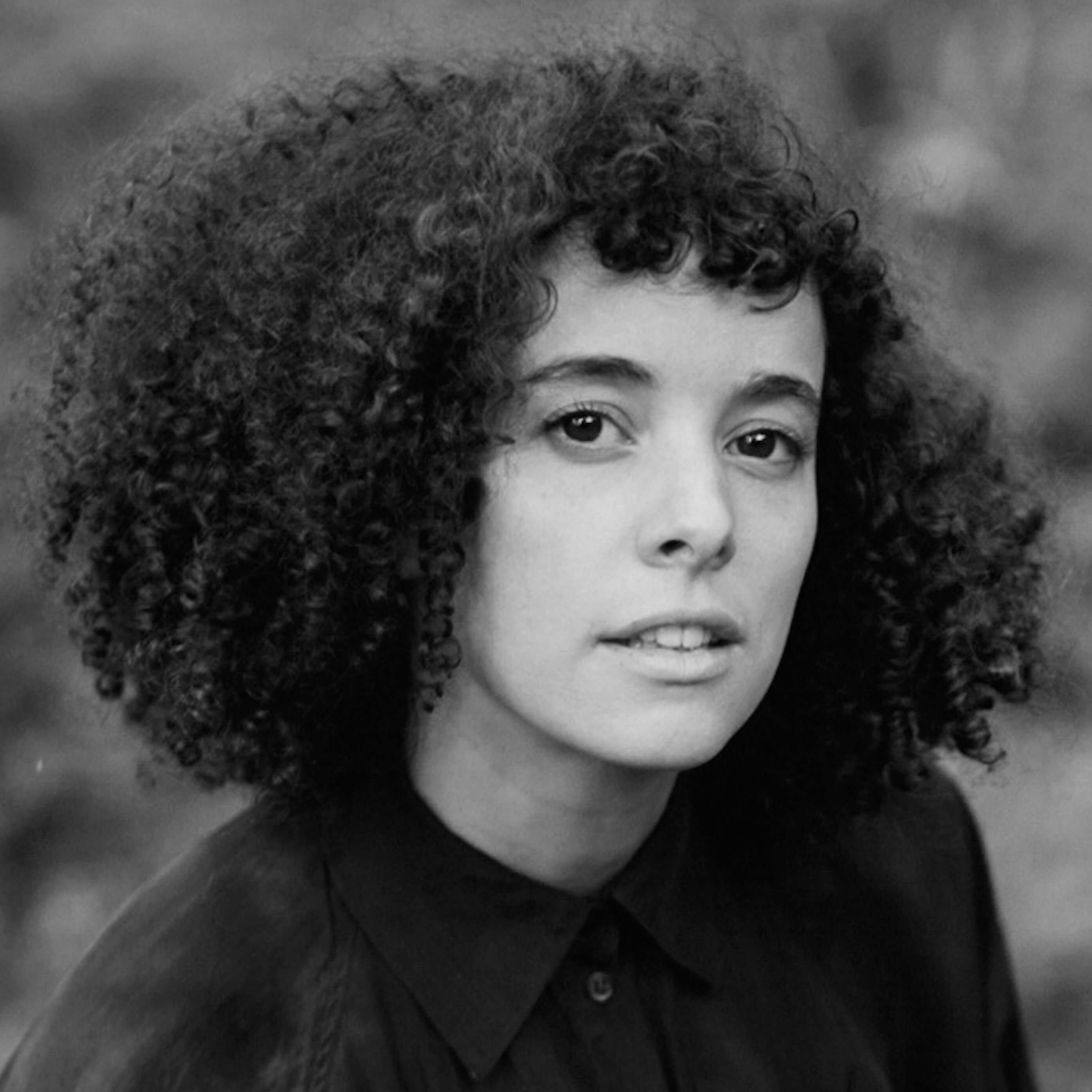 Malika Zouhali-Worrall is a director, producer and editor of British/Moroccan origin. Her first feature Call Me Kuchi (Berlinale 2012), directed with Katherine Fairfax Wright, screened at over 200 festivals. Malika is an alumna of numerous filmmaker fellowships, including the Roger Ebert Directing Fellowship, Tribeca All Access, and Firelight Media Producer’s Lab. In 2012, Filmmaker Magazine named Malika in its annual 25 New Faces of Independent Film list.
Malika Zouhali-Worrall is a director, producer and editor of British/Moroccan origin. Her first feature Call Me Kuchi (Berlinale 2012), directed with Katherine Fairfax Wright, screened at over 200 festivals. Malika is an alumna of numerous filmmaker fellowships, including the Roger Ebert Directing Fellowship, Tribeca All Access, and Firelight Media Producer’s Lab. In 2012, Filmmaker Magazine named Malika in its annual 25 New Faces of Independent Film list.
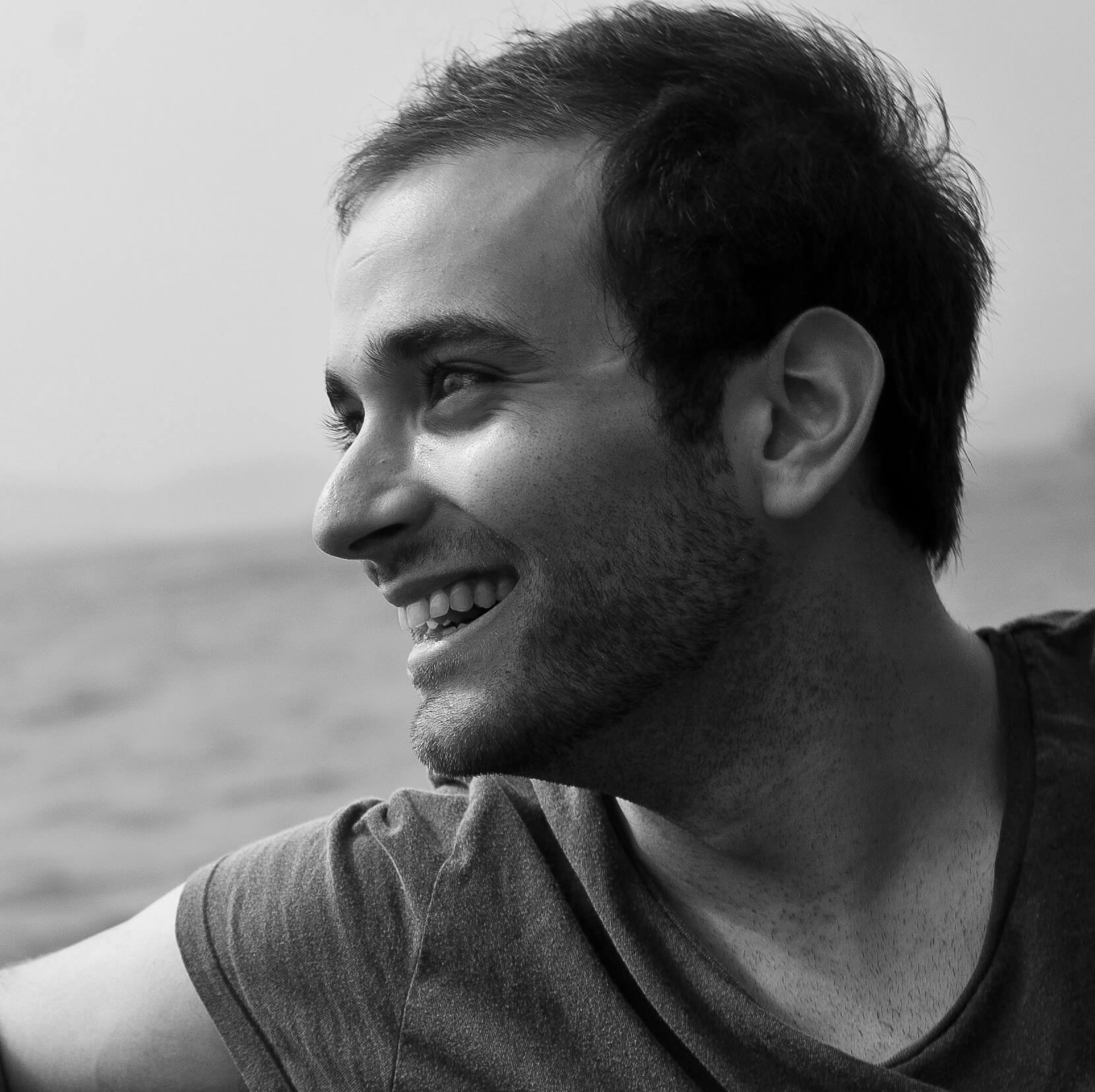 David Osit is a documentary filmmaker and composer based in New York. His first feature documentary, Building Babel, was a recipient of ITVS Open Call funding and broadcast on PBS America Reframed in 2013. David was co-producer, composer, and sound recorder for Where Heaven Meets Hell, which broadcast on PBS Global Voices in 2013. David received his MFA in Social Documentary Film from the School of Visual Arts in New York.
David Osit is a documentary filmmaker and composer based in New York. His first feature documentary, Building Babel, was a recipient of ITVS Open Call funding and broadcast on PBS America Reframed in 2013. David was co-producer, composer, and sound recorder for Where Heaven Meets Hell, which broadcast on PBS Global Voices in 2013. David received his MFA in Social Documentary Film from the School of Visual Arts in New York.
NOW PLAYING
In 2016, Games You Can’t Win debuted as a New York Times Op-Doc. To watch, visit the New York Times Op-Docs website. Thank You For Playing, the feature-length documentary on which Games You Can’t Win is based, premiered at the Tribeca Film Festival in 2015.
The Chosen Life
SYNOPSIS
The Chosen Life follows the story of Dr. Yashica Robinson as she offers reproductive options for women in Huntsville, Alabama, where abortion providers face harassment, ostracism, and state-sanctioned obstacles.
ABOUT THE DIRECTOR
The Chosen Life is directed by Dawn Porter.
Dawn Porter is an award-winning filmmaker whose 2013 documentary Gideon’s Army won the Sundance Film Festival Editing Award, Tribeca All Access Creative Promise Award, ABA Silver Gavel Award for Media and the Arts, and Ridenhour Documentary Film Prize. Dawn directed and produced Spies of Mississippi — a critically-acclaimed historical documentary that was part of ITVS’ 2014 Independent Lens series on PBS. The film tells the little-known story of a state-sponsored campaign to defeat the Civil Rights Movement in the 1960s.
Dawn recently completed Rise: The Promise of My Brother’s Keeper, a documentary film chronicling President Obama’s program to help young men and boys of color succeed. She interviewed President Obama for the film which is set to air nationally on The Discovery Channel and The Oprah Winfrey Newtwork.
Prior to her independent filmmaking career, Dawn worked as Director of Standards and Practices at ABC News and as Vice President of Standard and Practices at A&E Television Networks. She graduated from Swarthmore College and Georgetown Law Center.
NOW PLAYING
In 2016, The Chosen Life debuted as a New York Times Op-Doc. To watch, visit the New York Times Op-Docs website. This film was inspired by Dawn Porter’s feature-length documentary Trapped, which premiered at the 2016 Sundance Film Festival, where it won the Special Jury Award for Social Impact Filmmaking, and which appeared on PBS’s Independent Lens on June 2016.
Love the Sinner
SYNOPSIS
Love the Sinner is a personal documentary exploring the connection between Christianity and homophobia in the wake of the shooting at Pulse nightclub in Orlando.
Queer filmmaker Jessica Devaney grew up deeply immersed in Evangelical Christianity in Florida. After breaking with her youth as a nationally recognized activist and leader among conservative Evangelicals, Jessica left Florida and didn’t look back. She built a life that took her as far away from home as possible. Over time, her daily life became a progressive echo chamber.
The mass shooting at Pulse was a wake up call. By avoiding hard conversations with church leadership, had she missed opportunities to challenge homophobia? Love the Sinner probes our responsibility to face bias in our communities and push for dignity and equality for all.
ABOUT THE DIRECTORS
 Jessica Devaney is a Brooklyn-based producer and the founder of Multitude Films. She produced the Critic’s Choice nominated Speed Sisters (Hot Docs, 2015), which the New York Times called “subtly rebellious and defiantly optimistic” and Out Again (Outfest, 2017) for Refinery29’s Shatterbox Anthology. Forthcoming films include The Feeling of Being Watched, The Rashomon Effect, and Roll Red Roll. Jessica’s directorial debut short, Love the Sinner, premiered at Tribeca Film Festival in 2017, screened at over a dozen festivals, and was supported by The Harnisch Foundation, Fork Films, Sundance, The Fledgling Fund, and Chicken & Egg Pictures. Jessica was formerly the Director of Communications at Just Vision where she produced films in various capacities including Sundance and Guggenheim funded Naila and the Uprising (IDFA, 2017), Peabody Award-winning My Neighbourhood (Tribeca, 2012), the web series Home Front (Aspen ShortsFest, 2011), and Ridenhour Documentary Prize and PUMA Impact Award-winning Budrus (Berlin, Tribeca, 2010). Jessica has an MA in religious studies from Wake Forest University and studied at Georgetown’s Graduate School of Foreign Service in the Center for Contemporary Arab Studies. She co-founded the Queer Producers Collective, produced Doc Society’s inaugural Queer Impact Producers Lab, and was Sundance Edit and Story Lab Fellow and a Women at Sundance Fellow.
Jessica Devaney is a Brooklyn-based producer and the founder of Multitude Films. She produced the Critic’s Choice nominated Speed Sisters (Hot Docs, 2015), which the New York Times called “subtly rebellious and defiantly optimistic” and Out Again (Outfest, 2017) for Refinery29’s Shatterbox Anthology. Forthcoming films include The Feeling of Being Watched, The Rashomon Effect, and Roll Red Roll. Jessica’s directorial debut short, Love the Sinner, premiered at Tribeca Film Festival in 2017, screened at over a dozen festivals, and was supported by The Harnisch Foundation, Fork Films, Sundance, The Fledgling Fund, and Chicken & Egg Pictures. Jessica was formerly the Director of Communications at Just Vision where she produced films in various capacities including Sundance and Guggenheim funded Naila and the Uprising (IDFA, 2017), Peabody Award-winning My Neighbourhood (Tribeca, 2012), the web series Home Front (Aspen ShortsFest, 2011), and Ridenhour Documentary Prize and PUMA Impact Award-winning Budrus (Berlin, Tribeca, 2010). Jessica has an MA in religious studies from Wake Forest University and studied at Georgetown’s Graduate School of Foreign Service in the Center for Contemporary Arab Studies. She co-founded the Queer Producers Collective, produced Doc Society’s inaugural Queer Impact Producers Lab, and was Sundance Edit and Story Lab Fellow and a Women at Sundance Fellow.
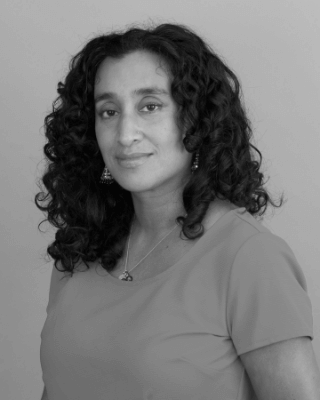 Geeta Gandbhir has won two Emmy® Awards, and her films have won an Academy Award® and three Peabody Awards. Most recently, a feature documentary she produced with Perri Peltz and directed with Academy Award®-winning director Sharmeen Obaid-Chinoy, A Journey of A Thousand Miles: Peacekeepers premiered at the 2015 Toronto International Film Festival. She is currently co-directing and co-producing a Conversation series on race with The New York Times Op-Docs, and she co-directed and edited the film, Remembering the Artist, Robert De Niro, Sr. with Perri Peltz for HBO. Her film, Which Way is the Front Line From Here? with author and Academy Award-nominated director Sebastian Junger was nominated for the 2014 News and Doc Emmy®.
Geeta Gandbhir has won two Emmy® Awards, and her films have won an Academy Award® and three Peabody Awards. Most recently, a feature documentary she produced with Perri Peltz and directed with Academy Award®-winning director Sharmeen Obaid-Chinoy, A Journey of A Thousand Miles: Peacekeepers premiered at the 2015 Toronto International Film Festival. She is currently co-directing and co-producing a Conversation series on race with The New York Times Op-Docs, and she co-directed and edited the film, Remembering the Artist, Robert De Niro, Sr. with Perri Peltz for HBO. Her film, Which Way is the Front Line From Here? with author and Academy Award-nominated director Sebastian Junger was nominated for the 2014 News and Doc Emmy®.
Dispatches From Cleveland
SYNOPSIS
The film follows ordinary people – long shaken by police misconduct, social discrimination, and poverty – whose love for their home pushes them to work together to bring about real change.
Spanning the 2015 Movement for Black Lives Convening to the 2016 Republican National Convention, the film weaves together the experiences of people using varied strategies to achieve similar goals, such as impacting down-ballot races. Depicting the intersecting movements in Cleveland, the film highlights that lasting change will come from prioritizing the lives of those most marginalized.
This film presents a nuanced examination of a national movement as only documentary film can – focusing on an individual location and decisive characters during a crucial year. Cleveland is the pulse of a nation and a potential harbinger of what is to come throughout the country.
ABOUT THE DIRECTOR
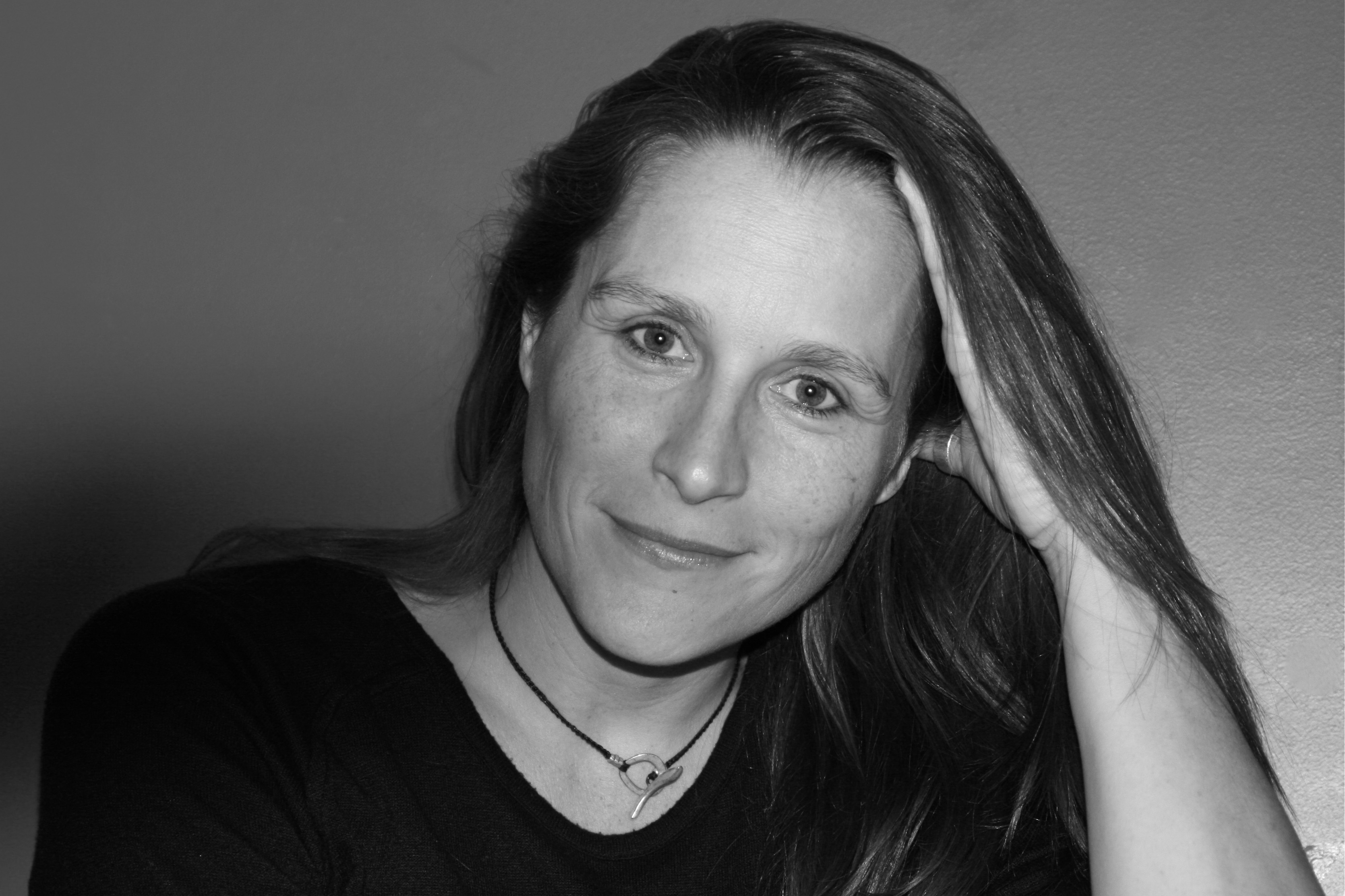 Catherine Gund is an Emmy-nominated producer, director, writer, and organizer. Her media work focuses on strategic and sustainable social transformation, arts and culture, HIV/AIDS and reproductive health, the environment, and other social justice issues. Her films – which include Born to Fly, What’s On Your Plate?, A Touch of Greatness, Motherland Afghanistan, Making Grace, On Hostile Ground, and Hallelujah! – have screened around the world in festivals, theaters, museums, and schools; on PBS’s Independent Lens, Discovery’s Planet Green, and the Sundance Channel. She is also currently co-directing and co-producing Aubin’s Amor Puro y Duro.
Catherine Gund is an Emmy-nominated producer, director, writer, and organizer. Her media work focuses on strategic and sustainable social transformation, arts and culture, HIV/AIDS and reproductive health, the environment, and other social justice issues. Her films – which include Born to Fly, What’s On Your Plate?, A Touch of Greatness, Motherland Afghanistan, Making Grace, On Hostile Ground, and Hallelujah! – have screened around the world in festivals, theaters, museums, and schools; on PBS’s Independent Lens, Discovery’s Planet Green, and the Sundance Channel. She is also currently co-directing and co-producing Aubin’s Amor Puro y Duro.
NOW PLAYING
Dispatches from Cleveland has screened at the Frameline Film Festival, the Cleveland International Film Festival, the Minneapolis St. Paul Film Festival, and the (IN)Justice for All Film Festival (Chicago), and has received a Special Recognition Award from the (IN)Justice for All Film Festival.
6X9: A Virtual Experience of Solitary Confinement
SYNOPSIS
Right now, more than 80,000 people are locked in a 6 by 9 foot concrete box. They have no human contact, every element of their environment is controlled. The sensory deprivation causes severe psychological damage. It changes them, they become invisible. 6X9 invites participants into their world.
ABOUT THE DIRECTORS
6X9: A Virtual Experience of Solitary Confinement is co-directed by Francesca Panetta & Lindsay Poulton.
Francesca Panetta is a multi-award winning sound artist and journalist. She works for the Guardian as a Special Projects Editor leading on projects which innovate in storytelling. Working with journalists and multimedia producers, developers and designers, she has commissioned and directed flagship pieces such as Firestorm, The Shirt on Your Back, The View from the Shard, and The First World War, an interactive multilingual documentary. In addition to her work at the Guardian, Francesca works as a sound artist specializing in binaural sound design and non-linear storytelling, usually in physical landscapes. Francesca talks around the world about digital storytelling and innovation in audio.
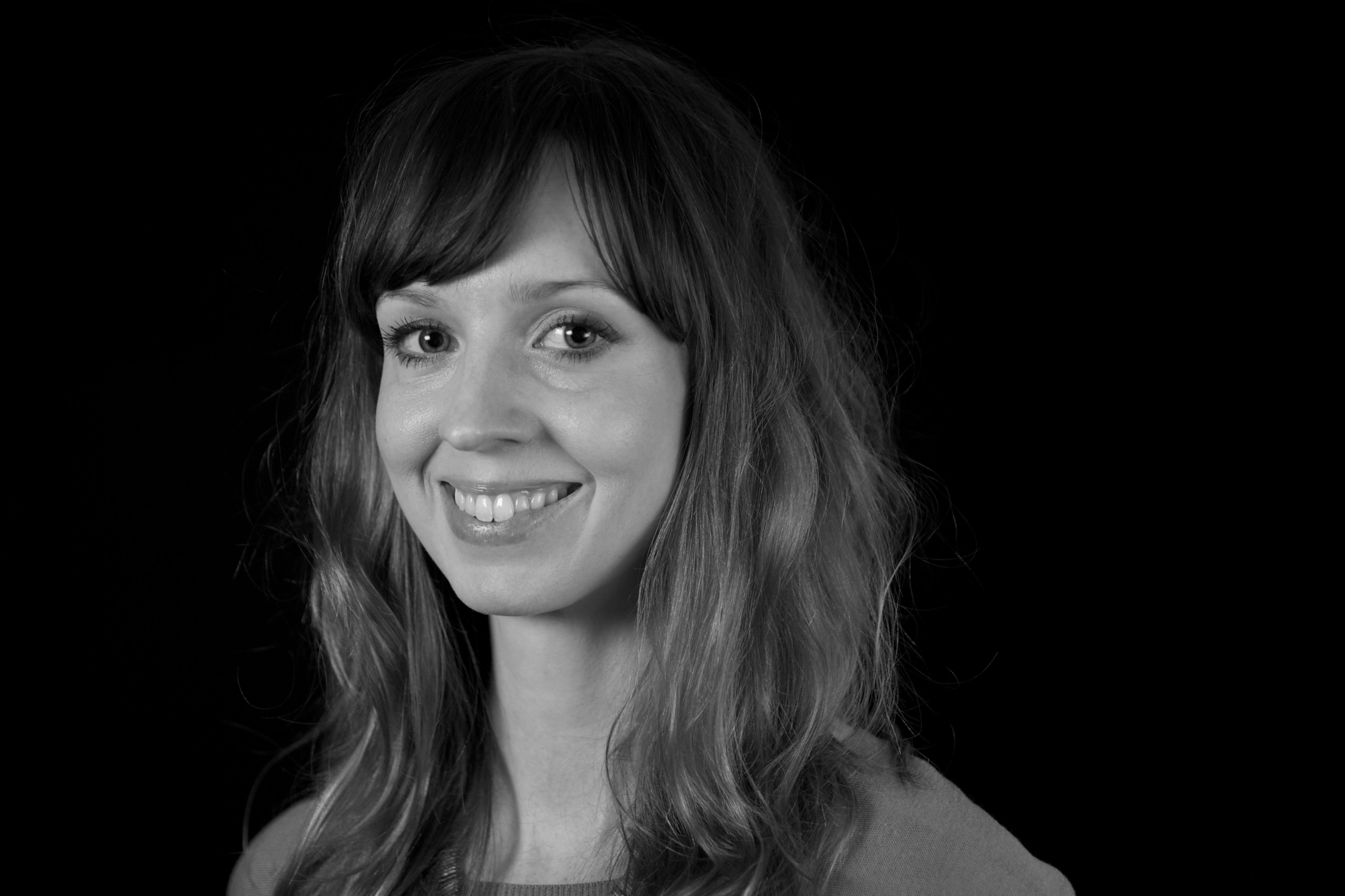 Lindsay Poulton is a multi-award winning documentary filmmaker and journalist who is passionate about innovation in digital storytelling and new platforms. She has produced a wide range of documentaries and multimedia interactives on subjects ranging from climate change to literature, features on the First World War, military operations in Afghanistan, and investigations into the global garment industry. Lindsay speaks at festivals and conferences around the world about documentary and innovation in digital storytelling.
Lindsay Poulton is a multi-award winning documentary filmmaker and journalist who is passionate about innovation in digital storytelling and new platforms. She has produced a wide range of documentaries and multimedia interactives on subjects ranging from climate change to literature, features on the First World War, military operations in Afghanistan, and investigations into the global garment industry. Lindsay speaks at festivals and conferences around the world about documentary and innovation in digital storytelling.


